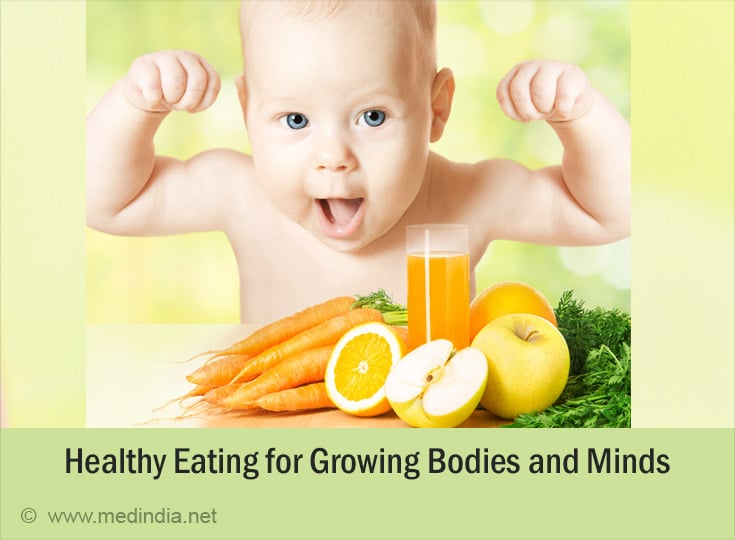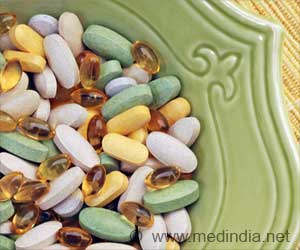- Vitamin D - (https://www.cdc.gov/nutrition/infantandtoddlernutrition/vitamins-minerals/vitamin-d.html)
- Vitamin D for Babies, Children & Adolescents - (https://www.healthychildren.org/English/healthy-living/nutrition/Pages/vitamin-d-on-the-double.aspx)
- Iron - (https://www.cdc.gov/breastfeeding-special-circumstances/hcp/diet-micronutrients/iron.html)
- Iron needs of babies and children - (https://www.ncbi.nlm.nih.gov/pmc/articles/PMC2528681/)
- Omega-3 Fatty Acids - (https://ods.od.nih.gov/factsheets/Omega3FattyAcids-HealthProfessional/)
- Zinc - (https://ods.od.nih.gov/factsheets/Zinc-HealthProfessional/)
- Calcium - (https://ods.od.nih.gov/factsheets/Calcium-HealthProfessional/)
- Potassium - (https://ods.od.nih.gov/factsheets/Potassium-HealthProfessional/)
About
Ensuring children receive the right nutrients is essential for their learning, growth, and overall development. For many children, breastfeeding or formula-feeding in infancy, followed by a balanced diet during their toddler years and beyond, suffices to meet their nutritional needs. However, some children, particularly those with picky eating habits or specific health issues, may require supplements or specialized nutritional support to stay well-nourished.
Your pediatrician and a pediatric registered dietitian nutritionist (RDN) can guide you in understanding your child's unique nutritional requirements. They can also recommend tools and strategies to help your child get the essential vitamins and minerals they need to thrive. Here is a comprehensive guide to the top nutrients children need at every age.

Are Your Kids Getting Enough of These Essential Nutrients?
Children require a variety of vitamins and minerals, but six key nutrients stand out for their importance: vitamin D, iron, omega-3s, zinc, calcium, and potassium. Here’s how to ensure your child consistently gets these nutrients.
Vitamin D
Vitamin D is crucial for bone health at all ages. It aids in building strong bones during childhood and provides lifelong benefits. It also helps reduce inflammation and boosts immunity.
Sources of vitamin D include sunlight, trout, salmon, vitamin D-fortified milk, plant-based milk, and fortified cereal.
- 0-6 months: Infants who are breastfed or consume less than 27 ounces of formula daily should receive a vitamin D supplement providing at least 400 IU per day(1✔ ✔Trusted Source
Vitamin D
Go to source). - Infants (6-12 months): They may continue to need supplementation as it can be challenging to get enough vitamin D from food sources alone.
- Toddlers and young children: As children begin to eat more varied foods, they may not require a supplement. However, consultation with a pediatrician is recommended.
- Older children and teenagers: They need 600 IU per day. Periodic checks of their vitamin D levels can determine if supplementation is necessary(2✔ ✔Trusted Source
Vitamin D for Babies, Children & Adolescents
Go to source).
Iron
Iron is essential for carrying oxygen in red blood cells and producing energy. It is particularly important for brain development and growth in babies.
Sources of iron include meat, seafood, poultry, spinach, beans, and fortified cereals.
- 0-6 months: Newborns typically have sufficient iron stores for the first six months(3✔ ✔Trusted Source
Iron
Go to source). - Infants (6 months): Iron needs to increase to 11 mg per day. Introducing iron-rich foods like fortified cereals, meats, and beans is crucial(4✔ ✔Trusted Source
Iron needs of babies and children
Go to source). - Toddlers and young children: Children need 7 mg per day between ages 1-3 and 10 mg per day between ages 4-8. Limiting cow's milk to no more than 20 ounces daily helps ensure they get enough iron from other foods.
- Older children and teenagers: Around age 9, children often decrease their intake of protein-rich foods. Iron remains vital, especially for teenage girls experiencing menstruation.
Omega-3s
Omega-3 fatty acids are critical for brain health, central nervous and cardiovascular systems, and eye function.
Sources of omega-3s include salmon, sardines, herring, mackerel, walnuts, flaxseeds, chia seeds, and canola oil.
- 0-6 months: Human milk and most commercial formulas provide omega-3s.
- Infants: Introducing omega-3-rich foods like fish and flaxseed can help develop a taste for these foods.
- Toddlers and young children: They need 0.7 grams per day from ages 1-3 and 0.9 grams per day from ages 4-8. Incorporating omega-3-rich foods into meals is beneficial(5✔ ✔Trusted Source
Omega-3 Fatty Acids
Go to source). - Older children and teenagers: Their need increases to more than 1-1.6 grams per day. Continue to include omega-3-rich foods in their diet.
Zinc
Zinc is vital for growth, immune function, and wound healing. It also plays a role in taste and smell.
Sources of zinc include meats, dairy, fish, shellfish, legumes, and fortified cereals.
- 0-6 months: Human milk and formula provide adequate zinc(6✔ ✔Trusted Source
Zinc
Go to source). - Infants (7-12 months): Need 3 mg of zinc per day. Complementary foods rich in zinc are important.
- Toddlers and young children: Kids ages 1-3 need 7 mg daily, and those 4-8 years require 12 mg.
- Older children and teenagers: While zinc remains important, ensure a varied diet to meet their needs.
Calcium
Calcium is essential for building strong bones and teeth. Most peak bone mass is built before the 20s.
Sources of calcium include cow's milk, yogurt, cheese, almonds, broccoli, kale, spinach, and fortified plant-based milk.
- 0-6 months: Human milk or formula provides sufficient calcium.
- Infants (6-12 months): Calcium needs increase, but cow's milk should be avoided until after 12 months.
- Toddlers and young children: Children need 700 mg per day from ages 1-3 and 1,000 mg per day from ages 4-8(7✔ ✔Trusted Source
Calcium
Go to source). - Older children and teenagers: They need 1,300 mg per day after age 9. Encourage calcium-rich foods to ensure strong bones.
Potassium
Potassium helps nerves function, muscles contract, and maintains normal fluid levels inside cells.
Sources of potassium include oranges, grapefruits, melons, grapes, spinach, potatoes, bananas, lentils, dried fruit, winter squash, sweet potatoes, and milk.
- 0-6 months: Human milk and formula provide adequate potassium(8✔ ✔Trusted Source
Potassium
Go to source). - Infants (6-12 months): Potassium needs increase to 860 mg per day. Including produce like bananas and oranges in their diet is beneficial.
- Toddlers and young children: Potassium needs range from 2,000 mg for ages 1-3 to 2,300 mg for ages 4-8.
- Older children and teenagers: Active kids need sufficient potassium to maintain fluid balance, especially during high activity or hot weather.
By focusing on these key nutrients and incorporating a balanced diet, you can help your child grow healthy and strong. Consult with healthcare professionals to tailor nutrition plans that best meet your child's unique needs.










